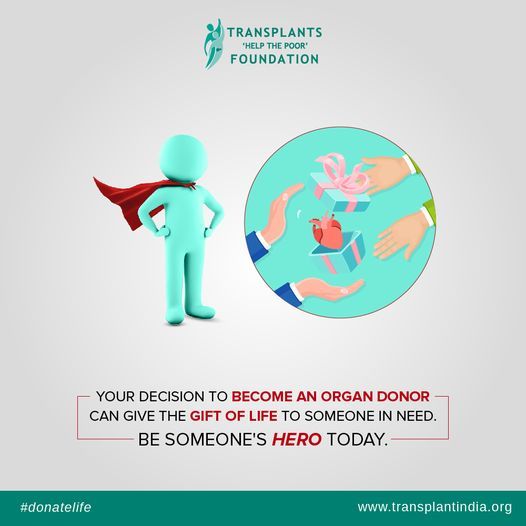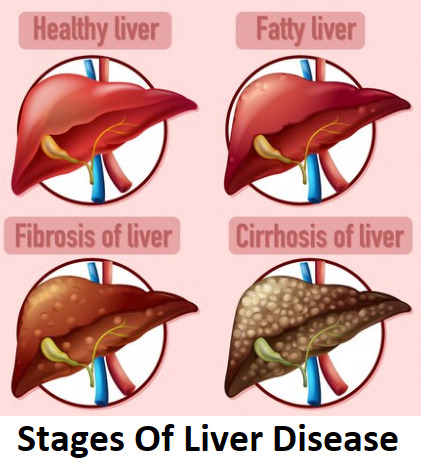Text
The Psychological Effect of Chronic Illness on Families
Chronic illness is not solely a burden taken upon the individual; it extends its reach outwards, touching every member of the family. The relentlessness of some chronic diseases-such as cancer, diabetes, organ failures, or any other potentially fatal ailments-compels families to adjust to new realities at high emotional and psychological costs. The journey of chronic illness is long and uncertain and has the potential to be quite profound regarding its impact upon families, not only emotionally but financially and within daily life.

When a close family member is diagnosed with a chronic disease, first comes the shock, and then emotions start flowing: fear, anxiety, anger, and even self-blame. Family members pendulate between hope and despair, especially when confronted with the mortal consequences of a certain disease. Uncertainty about the future and daily worrying about managing the illness may build up into chronic, uncontrolled stress that sooner or later evolves into depression or anxiety disorder.
Children, in particular, may or may not realise what is happening and may often feel helpless or alienated while watching a parent or sibling go through all the trials of chronic illness. It can also alter spousal relationships because one becomes more of a caregiver toward the other, which brings along resentment or burnout feelings. The emotional toll is very valid, and it can gnaw away at the very core of family life.
Another key burden on the family is financial. The increased cost of medical care and transportation, as well as the potential loss of income when a family member must reduce work hours or leave the workforce to care for a loved one, contribute to financial stress. It was also interjected that this financial burden might increase emotional stress and lead to frustration and feelings of helplessness, which could even create conflict within the family. Such constant concerns about finances may overshadow the focus on the well-being of the patient completely, thereby setting up a vicious cycle that further impacts the mental health of the family.
Such financially strained moments are when organisations like Transplant India very much come to the fore in alleviating such pressure by providing financial support to the families who bear the expensive organ transplant processes, hence helping families to concentrate on emotional and psychological healing.
Despite such challenges, families often find a way to cope using both internal and external resources. There lies a central role in building resilience, which involves open communication, emotional support, and sometimes professional help. Here are some of the common ways or mechanisms in which families cope with the vagaries of chronic illness:
Open Communication: Honest and open communication is very important in helping the family to process their feelings and understand each other's needs. Regular family meetings or discussions can provide the best place to safely share fears, frustrations, and hopes for the maintenance of a good family bond.
Professional Help: Therapy or counselling can arm families with some of the tools necessary to keep their emotional responses to chronic illness in check. Guidance from a professional can help in coping with stress and developing healthy communication techniques, in addition to not allowing more serious mental health problems to occur.
Establishing a Support System: Drawing on extended family, and friends, or having a support group can be very relaxing. In offering practical help with daily tasks or sometimes providing a shoulder to share their feelings with, a good support system can take off a part of the burden and give moral nourishment.
Embracing Flexibility: Most of the time, chronic illness is going to require some change in daily routines and expectations. Families who can learn to be flexible and adjust to new circumstances do much better. This may mean renegotiating household responsibilities or work schedules to allow for care needs.
Making Moments of Joy: Of all the hardships, making moments of joy and appreciation can be so powerful. Be it in the celebration of small victories in the health journey of a patient or just great times spent together, focusing on the positives helps in holding on to normalcy and hope.
Beyond the nuclear family, a broad network of external support becomes critical to enabling families to cope with chronic illness. Resources provided by community organisations, health care providers, and non-profit groups can help lighten this burden. These may include financial aid, counselling, respite care, educational programs, and guidance that empowers families with knowledge about the illness and how to manage it.
This can also bring comfort and solidarity when connecting with other families who have gone or are going through similar experiences. In-person or online support groups enable the sharing of experiences, giving of advice, and receiving of empathy from people who truly understand how the journey feels.

While there is no denying that chronic illness will irrevocably alter the dynamics of family life, it ushers in not a few challenges that call for resiliency, adaptability, and support. By being open with communication, seeking out professional help, and opening up to help offered by community resources, families can transcend the psychological tolls of chronic illness more effectively and in unity.
This context is quite consoling in knowing that there are organisations that take cognisance of some of these issues and take on the responsibility of betterment. For instance, Transplant India provides financial support not only to a life-saving transplant but also gives the network that is equally needed to cope emotionally and psychologically with illness. It's in those most trying times that they offer a helping hand to make sure family members get to focus their energies on what counts: taking care of loved ones.
#transplant India#transplant organization#transplant organisation#become organ donor#organ donation#organ transplant#crowdfunding ngo#funding for organ transplant
0 notes
Text
How Does Transplants India Provide a Lifeline to the Needy
Transplants India is the ray of hope that a lot of patients are looking for when faced with the challenge of an organ transplant, and often, the wallet needs to be thick enough to afford one. The mission of the organisation has been to provide financial aid to the economically challenged who are in dire need of lifesaving organ transplants. Whereas the shortage of organ donors remains a cause of concern, the economic costs involved in transplantation are no less depressing. Transplants India addresses this dual challenge of making donors accessible to needy people and funds for transplants.
Providing a Lifeline Without Financial Constraints
Another distinguishing feature of Transplants India is its commitment to providing financial aid to those who cannot afford organ transplants. Many patients get live organ donors but are unable to go ahead with the transplant due to their inability to afford it. This happens frequently in the economically weaker sections of society, which often get financially challenged in this endeavour to save their loved ones. Transplants India bridges this financial gap and gives hope and a chance at life to those who would otherwise be left helpless.
Empowering the Economically Challenged
Affording an organ transplant is expensive. Patients who cannot secure finances mostly die because their health will continue deteriorating without a transplant. It not only financially drains the patients but devastates their families, rendering them in further poverty and despair. This overall critical issue is recognised by Transplants India, which is working tirelessly to make sure that no financial barriers come in the way of lifesaving medical procedures.
The Power of Your Donations
Transplants India relies upon generous donations to continue its great work. Any donation of funds can make an enormous difference in the life of someone who may be suffering from any life-threatening illness. Contributions enable patients to afford themselves health and happiness. All donations made to Transplants India are 80G compliant. Hence, tax-deductible and secure organisations appeal to one and all for donations and support to the cause to give many, many a second chance at life.
The Life-Saving Impact of Organ Donation
Besides monetary donations, organ donation is the area of work that is emphasised at Transplants India. One person can save up to eight lives by becoming an organ donor. Organ donation helps people make a significant contribution to society and creates a difference that can be remembered. Transplants India provides those interested in pledging organs with the proper resources and support to put a culture of gifting and saving lives into action and impacting Social Responsibility (CSR) Tie-ups.
Corporate Social Responsibility Saving Lives
Transplants India also seeks support from corporations through its CSR activities. An association with Transplants India will make these corporate houses vital in bringing financial support to people who are in dire need of organ transplant operations. Such associations save lives, enhance the corporate image, and discharge social responsibility. Participating in the noble cause of Transplants India facilitates these corporate houses to have a mark in society through an illustrious gesture of CSR participation.
Conclusion
Transplants India has been the epitome of gesture, compassion, and community support. Giving many people hope for life, and a chance to live a new life by helping them with financial constraints related to organ transplantation, donations, organ pledging, and CSR collaborations continue to bring about wide-ranging differences and make sure that in the very near future, financial constraints will not be the ones deciding the fate of those in need of lifesaving transplants.
0 notes
Text
Organ and Tissue Transplantation in India
Definition and process of Organ and Tissue Transplantation
#organ donation#organ transplant#organ transplantation#tissue transplant#organ and tissue transplantation
0 notes
Text
Sustainable Practices in Organ Transplantation
The advancement of organ transplantation can be attributed to being unique and positively impacting numerous lives. As the medical community improves upon these critical interventions, a greater focus is placed on the incorporation of the principles of sustainability. It minimises negative impacts on the environment, people, and the community while economically sustainable. They are focused on expanding favourable effects on patients and guaranteeing the sustainability of the transplantation activities.

Thus, there is a need to enhance the evaluation and allocation of organs in terms of efficiency and effectiveness. Improving the efficiency of healthcare would directly impact the number of organs lost when outside the body, resulting in increased success rates with minimal wastage. An example is ex vivo perfusion systems, where organs flow through a process that keeps them functional outside the body for more days. These technologies enhance the rate of assessment and use of donor organs and minimise the discard rate of organs tremendously.
Another crucial area is the enhancement of living organ donation. Incompatible people give their internal organs like a kidney or a part of the liver, which may be a relative or a friend in many cases. The above practice offsets demand pressures on deceased donor programmes and lessens patient waiting time. However, living donations are also characterised by better results for recipients, a lack of long ischemic time, and all necessary pre-transplant investigations. Education and helpful programs are the keys to successful living donation practices.

Environmental sustainability in organ transplantation must also contemplate the aspect of carbon trace in the execution of medical procedures. Healthcare, in particular medical establishments, is one of the primary contributors to carbon emissions; therefore, organ transplantation also plays a crucial role in this aspect. To minimise this effect, green approaches should be adopted, like energy-conserving implanted medical equipment, environment-mindful disposal, and telemedicine for preliminary and post-transplant visits, thus reducing the amount of travel required. Hospitals and transplant centres can take other measures to adhere to green building policies and incorporate renewable energy sources to reduce their environmental effects.
Another critical factor in this dimension is social sustainability. This includes addressing issues such as equal accessibility of transplantation services amongst different population strata. Policies and initiatives aimed at reducing disparities in access include programs that include subsidised health care and increased public awareness. In addition, increasing awareness of organ donation in the population and encouraging people to become donors can improve the supply of organs for transplantation and the efficiency of transplant services in the future.
Economic sustainability can be defined as managing transplantation programs economically without overstraining available resources. This entails enhancing the utilisation of available and transplantable organs from donors, shortening hospital stays due to enhanced post-operative care, and attempting to ease the burden of hospital bills on the patients and their families. Another aspect is that it is only possible to develop stable sources of financing for transplantation programs with the support of ministries, associations, and companies of different forms of ownership.

Transplant India is an example of an organisation that has effectively translated these principles. This non-governmental organisation advocates for philanthropy in supporting those who need heart, liver and kidney transplants. Transplant India supports people financially and creates awareness of organ transplants and all other related sustainable strategies. The opportunities that influence many people and their families are vital points that they get involved in, such as living donation promotion and fighting for equal services for everybody. In their endeavours, Transplant India proves that the best practices in organ transplantation are possible and pertinent for the imperative future of healthcare.
Lastly, it is significant to note that there is a need to adopt sustainable practices in organ transplantation if organ transplantation programs are to thrive in the long run. The key issues here are the improvement of procurement and allocation procedures, the promotion of living donations, the minimisation of the adverse effects on the environment, the consideration of social disparities and the appropriate management of demand and supply in a healthcare setting so that the medical profession can optimise the outcomes for its patients and avert straining the earth’s resources. Centres such as Transplant India are perfect examples of the benefits of such practices that portray a brighter and more equal future in organ transplantation.
#organ donation#transplant organization#organ transplant#organ transplantation#organ donor#crowdfunding for organ transplant#become an organ donor#transplant india
0 notes
Text
Supporting Lives: Financial Assistance for Transplant Patients in India
Transplant patients in India deal with a lot of problems, both medical and financial. The cost of organ and tissue transplantation in India is very high, thus making it necessary for patients to get financial help. Various organizations are links between the patients in need and their financial requirements. These organizations devote their entire time to organ and tissue transplantation awareness in India, the importance of organ donation and its promotion, and the patient's guidance through the difficult medical expenses situation.
Mumbai, a city famous for its modern medical facilities, is one of the major hubs for organ transplants. A lot of lives have been saved by organs donated by living donors in Mumbai. Nevertheless, the high transplantation costs make financial aid a necessity. The expenses of transplants are usually very high; however, several foundations, crowdfunding platforms and NGOs are working to give financial assistance.
Crowdfunding for organ transplants has turned out to be a very common way to get financial aid. Websites and platforms that are used for organ transplant crowdfunding enable patients to tell their stories and ask for donations. Besides, these platforms have structured campaigns to help patients who need transplants.
Some NGOs work mainly with particular types of transplants. For example, Transplant India helps with liver transplants in India. Moreover, Transplant India gives monetary assistance to patients who need heart transplants and kidney transplants.
Education and awareness on the matter of organ donation are not only important, but they are life-changing as well. Many institutions in Mumbai and India stress the need for organ donation and how to become an organ donor, and as a result, a wave of hope and compassion is born. These programs are not only crucial, but they are the main factor that will help to raise the number of donors and hence save more lives.
The organ donation NGOs in Mumbai and the organ donation organizations in India conduct regular awareness campaigns, which inspire more people to join the listing of the organs for donation and thus, be a part of this life-saving mission.
The idea of financially helping people through the process of transplants is not just a good cause, it's a group job. The transplant foundations in India, transplant crowdfunding platforms, and the NGOs that are involved in the field of organ transplantation put their efforts together and many patients get the help they need.
Regardless of how small or big the contribution is, it counts in saving a life and giving hope to those in need. It's an entire community united for a single goal- to provide the gift of life.
Through the knowledge of the importance of organ and tissue transplantation and the means of assisting, we can all help with this life-saving mission. Various resources can be found for those who want to help or get assistance, which in turn ensures that the process of transplantation towards a successful result is supported from the very beginning.
#organ donation#organ transplant#organ donation NGO#crowdfunding for organ transplants#transplant organization#transplant India#financial assistance for organ transplant
0 notes
Text
Advancements in Transplant Technology: What the Future Holds
The field of organ transplantation is witnessing remarkable advancements, promising a future where the challenges of organ shortages and transplant rejections are significantly reduced. As a leading organ donation NGO, we’re excited to explore these innovations and their potential to save more lives. With ongoing support from crowdfunding for organ transplants and collaborative efforts with other transplant organizations, the horizon looks promising. Let’s delve into what the future holds for transplant technology.
Bioprinting: A Leap into the Future
One of the most thrilling advancements in transplant technology is bioprinting. Researchers can now create 3D-printed organs using a patient’s cells. This innovation promises a future with an unlimited supply of organs and significantly decreases the risk of transplant rejection. For organ donation NGOs, this means advocating for and investing in research that could eventually eliminate waiting lists for transplants.

Gene Editing: Precision and Promise
CRISPR and other gene-editing technologies are poised to transform organ transplantation. By correcting genetic defects in donor organs, transplant organizations can ensure better compatibility and longer-lasting transplant success rates. This precision medicine approach could dramatically improve patient outcomes while decreasing long-term healthcare costs.
Xenotransplantation: Crossing Species Barriers
With the recent successful pig heart transplant into a human patient, xenotransplantation has received renewed interest. This process, where organ transplants from one species into another, could significantly expand the donor pool. For NGOs focused on organ donation, supporting xenotransplantation research means engaging in ethical debates and ensuring that public and regulatory acceptance keeps pace with scientific breakthroughs.

Artificial Organs: Beyond Nature’s Design
The development of artificial organs is another area where technology is set to change the landscape of organ transplants. Devices such as the artificial pancreas and bioartificial kidneys are already in advanced stages of testing. These devices offer a dual benefit: providing life-saving support and bridging the time until a biological organ becomes available.
Crowdfunding: Empowering Patients and Research
Crowdfunding for organ transplants has emerged as a critical tool in democratizing access to medical care. Platforms dedicated to healthcare make it possible for patients to afford these life-saving procedures when insurance and personal funds fall short. For an organ donation NGO, guiding patients and their families through the crowdfunding process is essential, helping them navigate financial challenges while awaiting transplants.

Collaborative Efforts: The Role of Transplant Organizations
The role of transplant organizations in advancing these technologies cannot be understated. By fostering collaboration between researchers, clinicians, and policymakers, these organizations help streamline the adoption of new technologies in clinical settings. Moreover, they play a pivotal role in training medical professionals on the latest advancements, ensuring that the benefits of technology reach patients across the globe.
Conclusion: A Brighter Future Awaits
The future of transplant technology holds incredible promise for those in need of life-saving organ transplants. As a dedicated organ donation NGO, our commitment to supporting cutting-edge research, advocating for ethical policies, and assisting patients through crowdfunding for organ transplants remains more vital than ever. By working with transplant organizations and embracing these technological advancements, we move closer to a future where organ shortages are a thing of the past.
By staying informed and involved, you can contribute to this exciting future. Whether you support crowdfunding initiatives, volunteer with a transplant organization, or register as a donor, your actions can make a life-saving difference.
#organ donation NGO#organ donor#become an organ donor#organ transplant#crowdfunding for organ transplant#crowdfunding NGO#transplant organization#transplant India
0 notes
Text

The onset of organ failure often leaves individuals feeling lost and devoid of direction, particularly when compounded by both poor health and financial instability. However, it is crucial to recognize that this circumstance is no longer deemed irreversible.
By extending financial assistance to those in need, we can render treatment more accessible and affordable for the less privileged, offering them a path forward during such challenging times.
For more details contact Transplant India at https://www.transplantindia.org/
0 notes
Text

In a world where hope battles despair, Transplant India stands as a guiding light, dedicated to uplifting lives from the depths of desperation to newfound possibilities.
Centered on organ donation, especially for the less fortunate, this organization epitomizes compassion and selflessness.
#OrganDonation#GiftOfLife#TransplantIndia#RenewedDreams#HopeForAll#SecondChance#DonateLife#OrganTransplants
0 notes
Text

Embrace the profound impact of organ donation and become the rhythm of hope for those awaiting a second chance at life. In a world where every heartbeat counts, Transplant India invites you to discover the transformative journey of being an organ donor.
Uncover the steps to becoming the melody of compassion, where your decision can orchestrate a symphony of renewed hope for individuals in need of heart, liver, and kidney transplants.
Join us in creating a cadence of change—one beat at a time.
#heart transplants#heart donation#organ donation#DonateLife#TransplantIndia#Be An Organ Donor#Gift Of Life
0 notes
Text
The Role of NGOs in Supporting Organ Transplant Patients
In India, the journey through an organ transplant is fraught with not just medical challenges but also financial hardships. This is particularly true for major procedures like liver and kidney transplants, which can be prohibitively expensive. Thankfully, numerous non-governmental organizations (NGOs) play a crucial role in easing this burden. These entities provide essential support ranging from financial help for liver transplant patients to assistance in navigating the complexities of organ donation systems.
Financial Help for Liver Transplant Patients
Liver transplants are among the most costly medical procedures in India, with costs ranging anywhere from 12 to 25 lakh rupees. NGOs dedicated to supporting organ transplants often step in to offer financial aid to those in need. They work by raising funds through donations, charity events, and partnerships with corporate sponsors. This financial support can cover everything from pre-surgery tests and the transplant operation to post-operative care and medications, significantly reducing the financial strain on patients and their families.

Financial Help for Kidney Transplant Patients
Similarly, kidney transplant patients can benefit from the concerted efforts of NGOs. For instance, a single kidney transplant can cost between 5 to 20 lakh rupees, depending on various factors like hospital charges and post-transplant medication. NGOs facilitate access to funds through direct financial assistance or by helping patients set up crowdfunding campaigns. Crowdfunding for organ transplant expenses has emerged as a popular and effective method to gather communal support. Platforms like Ketto, Milaap, and TransplantsIndia are frequently used to reach wide audiences who are willing to contribute small amounts that collectively cover a substantial portion of the transplant costs.
Organ Donation NGO in Mumbai
Mumbai, a hub for medical treatment in India, is home to several prominent NGOs focused on organ donation and transplant support. These organizations not only provide financial aid but also work tirelessly to increase awareness about the importance of organ donation. According to the National Organ and Tissue Transplant Organization, the organ donation rate in India is about 0.65 per million population, which is considerably lower than in many Western countries. Mumbai-based NGOs conduct workshops, informational campaigns, and registration drives where individuals can sign up to be organ donors, thereby increasing the donor pool and potentially saving countless lives.

Crowdfunding for Organ Transplant
Crowdfunding has revolutionized how financial help for organ transplants is gathered. NGOs often guide patients through the process of setting up a crowdfunding page, crafting the campaign’s message, and promoting it on social media to ensure it reaches a wide audience. This method not only raises the necessary funds but also spreads awareness about the patient’s specific needs and the broader issue of organ donation.
Organ Donation and Transplant Awareness
Beyond financial assistance, educating the public about the benefits of organ donation is another critical area where NGOs contribute significantly. They strive to dispel myths and misconceptions associated with organ donation through community engagement activities and partnerships with healthcare providers. Their efforts ensure that more individuals become aware of how their decision to donate organs can save lives.

Conclusion
NGOs play an indispensable role in supporting organ transplant patients in India. From providing financial help for liver and kidney transplants to fostering a greater understanding and acceptance of organ donation, these organizations are vital in making organ transplants more accessible and less burdensome. Their work not only aids in saving lives but also in nurturing a culture of giving and compassion within the community. For anyone looking into options for an organ transplant, connecting with a relevant NGO can provide not just financial relief but a support system through one of life’s most challenging periods.
#organ transplant#transplant organization#organ donation#funding for liver transplant in india#crowdfunding for organ transplant#organ transplantation#crowdfunding NGO
0 notes
Text
Honoring Heroes: Odisha CM Recognizes Organ Donors with State Honors
Organ donation is a massive problem in India. There are hundreds of thousands of people who need organ transplants in Mumbai to stay alive. But there are way more people who need transplants than there are organ donors. So many people are stuck waiting, hoping an organ becomes available in time. The biggest need is for kidney transplants - that's what most people are waiting for an organ donor.
Overcoming Barriers: Education and Financial Support
There are a few reasons why there aren't enough organ donors in India. Many people don't understand its importance or have misconceptions about it because of cultural/religious beliefs. The cost of transplant surgeries is also really expensive for many families.
Some organizations are already working on this. A transplant organization in India provides money, counseling, and other support to transplant patients and their families. The MOHAN Foundation is a non-profit organization that spreads awareness about organ donation and helps set up transplants across India.

Odisha's Pioneering Initiative
In the middle of all this, the state of Odisha in India has done something remarkable to honor organ donors. The Chief Minister there, Naveen Patnaik, made it so that organ donors get treated with special honors - like really important or famous people. This includes things like a 21-gun salute, having their body wrapped in the Indian flag and other ceremonies. The families of organ donors also get financial help for kidney transplants in India and are recognized yearly on World Organ Donation Day. It's a big way to show how much organ donation is appreciated.
A Powerful Message and Ripple Effect
Odisha's new policy for honoring organ donors is a compelling statement. It says that organ and tissue transplantation in India is an incredibly heroic and respectable thing to do. By giving donors the same types of honors as famous or important people, the government recognizes their selfless sacrifice and how their decision saved lives. This doesn't just honor the donors and their families. It could also inspire more people to become donors themselves. If it motivates others, it could lead to a lot more organ funding for liver transplants in India over time.

Transplant Facilities in Mumbai
There are some good places to go for people in Mumbai who need information about organ transplants or are considering becoming organ donors. The Lilavati Hospital & Research Centre has programs for liver and kidney transplants. Global Hospitals Parel can do transplants for different organs, too. There's also an organization called Jeevan Aarogya that is run by the Maharashtra State Government. Their goal is to educate people about organ donation in Mumbai and get more donors signed up. They do a lot to spread awareness about this important cause.
A Step Towards a Brighter Future
Odisha's giving state honors to organ donors is a huge deal that could really increase organ donation across India. By honoring the amazing sacrifices donors make and supporting their families, the government is helping create a future where more lives are saved through organ donation. With the massive shortage of organs in India, this pioneering approach from Odisha gives people hope.
#transplant organization#organ donation#organ transplant#kidney transplant#organ transplantation#funding for liver transplant in india#funding for kidney transplant#organ and tissue transplant in India
0 notes
Text
Liver Transplantation: Types, Indications, and Outcomes
Liver transplantation is a light of hope for individuals grappling with end-stage liver disease, offering a new lease on life and a chance for renewed vitality. In a busy metropolis like Mumbai, where the demand for organ transplants is high, transplant organizations play a pivotal role in facilitating liver transplantation procedures. These organizations coordinate the complex process of organ procurement, transportation, and recipient readiness, ensuring that patients in need receive timely and life-saving interventions.

End-stage liver disease can arise from various causes, including chronic hepatitis, cirrhosis, liver cancer, and genetic disorders. When conventional treatments fail to provide relief, liver transplantation emerges as a viable option. Indications for liver transplantation encompass a spectrum of conditions, ranging from acute liver failure to advanced cirrhosis with complications such as ascites, hepatic encephalopathy, or variceal bleeding. Patient selection criteria are meticulous, considering medical history, liver disease severity, and overall health status.
Liver transplantation procedures can vary based on the source of the donor organ. Deceased donor liver transplants involve procuring a liver from a deceased individual who has previously consented to organ donation. Living donor liver transplants, on the other hand, entail the surgical removal of a portion of the liver from a healthy living donor, typically a family member or close relative. This innovative approach allows timely transplantation and expands the pool of available organs.

The outcomes of liver transplantation are often profound, offering recipients a chance for improved quality of life and long-term survival. Successful liver transplantation can alleviate symptoms of liver disease, restore liver function, and enable individuals to resume normal activities. However, the road to recovery post-transplantation requires diligence and adherence to medical recommendations. Recipients must undergo lifelong immunosuppressive therapy to prevent organ rejection and attend regular follow-up appointments to monitor liver function and overall health.
In India, NGOs dedicated to liver transplantation play a crucial in supporting patients and their families throughout the transplantation journey. These organizations provide financial assistance, emotional support, and educational resources to navigate the complexities of liver transplantation. By partnering with transplant centers and healthcare professionals, NGOs ensure that patients receive comprehensive care and access to life-saving interventions.
In conclusion, liver transplantation represents a beacon of hope for individuals facing end-stage liver disease. With advancements in surgical techniques, patient care, and organ allocation systems, liver transplantation continues to evolve as a life-saving intervention. In Mumbai and across India, the collaborative efforts of transplant organizations, healthcare professionals, and NGOs for liver transplantation are instrumental in transforming lives and fostering a future where no one is denied the opportunity for a second chance at life.

#transplant organization#NGO for liver transplantation#liver transplantation#organ donor#organ donation#organ transplants
0 notes
Text
Organ Donation and You: Addressing the Organ Shortage Crisis
The scarcity of organs for transplantation is a critical issue worldwide, and nowhere is this more pronounced than in bustling metropolises like Mumbai. However, amidst this crisis, there lies an opportunity for every individual to make a profound impact through organ donation. In Mumbai and across the globe, transplant organizations dedicated to liver transplants play a pivotal role in addressing this challenge.

The Organ Shortage Dilemma: A Global Concern
The demand for organs far exceeds the available supply, creating a dire shortage that affects individuals awaiting life-saving transplants. The reasons are manifold - from misconceptions about organ donation to legal and logistical challenges. As a result, countless lives are in limbo, with the hope of a transplant hanging in the balance.
The Role of Transplant Organizations in Mumbai: Bridging the Gap
Transplant organizations in Mumbai are at the forefront of efforts to bridge the organ shortage gap. These organizations work tirelessly to educate the public about organ donation, dispelling myths and encouraging individuals to register as donors. They also play a crucial role in coordinating the complex process of organ procurement, ensuring that organs are safely and swiftly transported from donors to recipients.
Organ Donation: A Gift of Life
Organ donation is an act of unparalleled generosity, a gift of life that can transform the narrative for someone grappling with organ failure. Whether it's the donation of a kidney, liver, heart, or other organs, each contribution has the potential to be a lifeline for those in desperate need. In Mumbai, where the pulse of life beats vibrantly, the gift of an organ can mean the difference between life and death.
The Role of NGOs in Facilitating Liver Transplants: A Holistic Approach
Explicitly focusing on liver transplants, NGOs play a critical role in Mumbai and beyond. These organizations often go beyond just facilitating transplants; they provide comprehensive support to patients and their families. From financial assistance to emotional counseling, NGOs create a holistic ecosystem that addresses the multifaceted challenges associated with organ transplantation.
Breaking Stigmas: Education and Awareness
A significant barrier to organ donation is the prevalence of myths and misconceptions. Transplant organizations and supporting NGOs conduct extensive awareness campaigns to debunk these myths. They educate the public about organ donation's ethical, legal, and medical aspects, fostering a culture where donation is viewed as a noble and socially responsible act.
Your Role in Mitigating the Crisis: Register as an Organ Donor
The crux of addressing the organ shortage crisis lies in individual choices. Anyone can be a hero by registering as an organ donor. In Mumbai and globally, the impact of a single registration can reverberate through communities. Transplant organizations work with NGOs to simplify registration, making it accessible to all.
Supporting NGOs: A Catalyst for Change
Supporting NGOs involved in liver transplants and organ donation is instrumental in effecting lasting change. These organizations provide financial aid and create a network of support for patients and their families. By contributing to these NGOs, individuals can actively participate in the collective effort to alleviate the organ shortage crisis.
Conclusion:
The organ shortage crisis demands a collective response. In Mumbai, where the heartbeat of a vibrant city mirrors the pulse of life, the need for organs is acute. Transplant organizations and NGOs work tirelessly, but their efforts are amplified when individuals join the cause. Registering as an organ donor, dispelling myths, and supporting NGOs can collectively transform the organ shortage narrative. Each person has the power to be a beacon of hope, contributing to a future where organs are available to all who need them.
Crowdfunding for Organ Transplant
#become an organ donor#charitable trust for transplant#crowdfunding for organ transplant#funding for liver transplant in India#organ and tissue transplantation#organ donation#transplant organization
1 note
·
View note
Text
Navigating Resources and Support in India’s Leading Organ Transplantation Hub
In recent years, India has emerged as a frontrunner in organ transplantation, showcasing cutting-edge medical expertise and state-of-the-art facilities. For those grappling with the formidable prospect of kidney or liver transplantation, financial concerns often compound the challenges. However, the sphere is evolving, and an abundance of resources and support systems are now available to mitigate the financial burden associated with these life-saving procedures.
Financial Aid for Kidney Transplants
Government Initiatives
Kidney transplantation stands as a significant medical intervention, and financial barriers should never hinder access to this crucial treatment. Fortunately, numerous channels exist to extend financial help for kidney transplant in India. Government-sponsored programs, charitable organizations, and private foundations actively contribute to supporting individuals in need.
Pradhan Mantri National Dialysis Program
Initiated by the Government of India, the Pradhan Mantri National Dialysis Program provides financial assistance for kidney patients undergoing dialysis and, in certain cases, extends support to transplant recipients. Collaborations with organizations like the National Organ and Tissue Transplant Organization (NOTTO) further facilitate financial aid for organ transplant procedures.
Funding Options for Liver Transplants
Diverse Support Networks
Liver transplantation, a complex and costly medical procedure, often presents a significant financial challenge. However, several funding options are in place to alleviate the financial burden on individuals requiring liver transplants in India. Government schemes, corporate social responsibility initiatives, and nonprofit organizations play a pivotal role in supporting these patients.
Liver Transplant Patient Aid Program
Exploring financial assistance programs like the Liver Transplant Patient Aid Program can provide crucial support to economically weaker sections of society. Corporate partnerships with healthcare institutions also contribute significantly to funding for liver transplant in India, exemplifying a collaborative effort to make organ transplantation accessible to a broader population.
Transplant Organizations and Support Systems
Navigating the intricate sphere of organ transplantation necessitates the backing of dedicated organizations and well-established systems. The NOTTO mentioned earlier, functions as a central coordinating body overseeing organ and tissue transplantation in India. Hospitals with transplant facilities often collaborate with these organizations to streamline the process for patients.
Additionally, transplant support groups and nonprofits play an essential role in providing emotional and informational support to patients and their families. These organizations foster a sense of community, enabling individuals to share experiences, seek advice, and find solace during their transplant journey.
Organ and Tissue Transplantation in Mumbai
Mumbai, a major healthcare hub in India, boasts world-class medical facilities and a strong infrastructure for organ and tissue transplantation. Leading hospitals in Mumbai specialize in transplant procedures, offering advanced technology and experienced medical professionals. Patients seeking organ transplants in Mumbai can benefit from the city’s well-established healthcare ecosystem.
Organ Donation Initiatives in Mumbai
Organ donation serves as the cornerstone of successful transplantation programs. Mumbai has witnessed a surge in awareness and participation in organ donation initiatives. Various campaigns and awareness drives aim to educate the public about the essence of organ donation in Mumbai, dispel myths, and encourage individuals to become organ donors.
Conclusion
India’s leading organ transplantation hub, particularly in Mumbai, offers a ray of hope for individuals in need of kidney and liver transplants. While financial concerns can be overwhelming, the availability of government programs, nonprofit organizations, and corporate support showcases a collective effort to make organ transplantation accessible to all. Navigating these resources and support systems ensures that patients can embark on their transplant journey with confidence and optimism, turning their organ transplant story into a triumph.
#kidney transplant India#organ donation Mumbai#liver transplant in India#organ donor#transplant organization#organ transplant#organ donation#kidney transplant#become an organ donor#organ transplantation
0 notes
Text
Tips for a Healthy and Fulfilling Post-Transplant Lifestyle!
Organ transplantation is a transformative journey, offering individuals a second chance at life. While the surgery marks a significant milestone, the post-transplant phase is equally crucial for long-term well-being. Here are essential tips for cultivating a healthy and fulfilling life after transplant.
Prioritize Medication Adherence:
Maintaining a strict schedule for immunosuppressive medications is paramount. These drugs prevent organ rejection, ensuring the success of the transplant. Skipping doses or altering the prescribed regimen can jeopardize the organ’s function. Use pill organizers, alarms, or smartphone apps to stay organized and on track with medications.
Embrace a Nutrient-Rich Diet:
A well-balanced diet is essential for post-transplant recovery. Focus on nutrient-rich foods such as fruits, vegetables, lean proteins, and whole grains. Consult with a nutritionist to tailor a diet that meets your needs and supports your transplanted organ’s health.
Stay Hydrated:
Adequate hydration is crucial for overall health and the proper functioning of the transplanted organ. Aim to drink plenty of water throughout the day. Limit caffeinated and sugary beverages, as excessive consumption may impact hydration levels.
Regular Exercise is Key:
Engaging in regular physical activity contributes to overall well-being. Consult your healthcare team for personalized exercise recommendations based on your health status. Activities like walking, swimming, or yoga can be adapted to individual fitness levels.
Prioritize Mental Health:
The emotional journey post-transplant can be complex. Seek support from mental health professionals, support groups, or counseling services provided by transplant organizations. Emotional well-being is integral to the overall success of life after transplant.
Attend Regular Follow-Up Appointments:
Scheduled follow-up appointments with your transplant team are crucial for monitoring your health and the function of the transplanted organ. These appointments allow healthcare professionals to detect and address any issues promptly.

Protect Against Infections:
Immunosuppressive medications can weaken the immune system, making transplant recipients more susceptible to infections. Practice good hygiene, maintain regular vaccinations, and avoid close contact with individuals who are sick.
Sun Protection:
Immunosuppressive medications may increase sensitivity to sunlight. Protect your skin using sunscreen, wearing protective clothing, and avoiding prolonged sun exposure. Regular skin checks are also recommended to monitor for any unusual changes.
Quit Smoking and Limit Alcohol:
Smoking and excessive alcohol consumption can have adverse effects on overall health and may impact the transplanted organ. Quit smoking and limit alcohol intake to promote a healthier lifestyle.

Build a Support Network:
Surround yourself with a supportive network of family and friends. Sharing your experiences and challenges with others who understand can be immensely beneficial. Joining support groups or engaging in community activities helps create a sense of belonging.
Set Realistic Goals:
Set achievable goals for yourself, considering your physical and emotional well-being. Celebrate small victories and progress, and be patient with yourself as you navigate the recovery journey.
Embrace Gratitude:
Express gratitude for the gift of life and the support received throughout the transplant process. Cultivating a positive mindset and appreciating each day contributes to a fulfilling post-transplant life.
In conclusion, life after transplant is an opportunity for renewal and a fresh start. Individuals can embark on a path of resilience, gratitude, and fulfillment by prioritizing medication adherence, adopting a healthy lifestyle, and nurturing mental well-being. The journey after transplant is a testament to the strength of the human spirit and the transformative power of the gift of life.
Organ Transplant Fundraising Foundation
#transplant organization#organ transplantation#organ donation#organ transplant organization#organ donation in India#NGO for organ transplants#crowdfunding for organ transplants#transplant fundraising foundation#organ transplant fundraising
0 notes
Text
Organ Transplants and Mental Health: Coping with Emotional Challenges
Organ transplantation is a remarkable medical advancement that offers a lifeline to individuals suffering from organ failure. In a bustling metropolis like Mumbai, the demand for organ transplantation, particularly liver transplants, is rising. This life-saving procedure is physically demanding and poses significant emotional and psychological challenges. Coping with these emotional hurdles is a crucial aspect of the transplant journey. Thankfully, organizations, including NGOs helping with liver transplants, play a pivotal role in providing support, information, and resources to help individuals navigate the emotional complexities of organ transplantation.
The Emotional Journey of Organ Transplant Recipients
For individuals awaiting organ transplantation, the emotional toll can be significant. They often grapple with various emotions, including anxiety, fear, and anticipation. The uncertainty of when a suitable organ will become available and the life-or-death nature of the procedure can lead to profound stress.

The Role of Mental Health in Transplantation
Mental health is a crucial aspect of the transplant journey. The stress and emotional upheaval associated with organ transplantation can impact a person’s overall well-being and physical recovery. Anxiety and depression, if left unaddressed, can hinder the body’s ability to heal and adapt to the new organ.
In this context, the support of NGOs helping with liver transplants in Mumbai and similar organizations across the world becomes invaluable. These NGOs often have mental health professionals and support networks that offer recipients a safe space to express their emotions, share their experiences, and access counselling services.
The Power of Support Networks
Support networks are lifelines for organ transplant recipients. They provide a sense of belonging and understanding that is vital during this journey. Whether connecting with other recipients who have faced similar emotional struggles or relying on friends and family for support, these networks can help individuals feel less isolated.
NGOs focused on organ transplantation often organize support groups where recipients can share their stories and insights. Hearing from others who have walked a similar path can be immensely reassuring. These organizations also offer resources on mental health, including coping strategies and tools to manage stress and anxiety.
The Role of NGOs in Supporting Mental Health
NGOs helping with liver transplants in Mumbai and other major cities in India and worldwide are dedicated to providing comprehensive support to transplant recipients. They recognize that the emotional journey is as critical as the physical one.
These organizations offer:
Counselling Services: Many NGOs have trained mental health professionals who specialize in working with transplant recipients. They provide one-on-one counselling and group therapy sessions to address emotional challenges.
Educational Resources: NGOs offer information and educational materials on mental health, organ transplantation, and the recovery process. This knowledge empowers recipients to understand better and manage their emotional well-being.
Support Groups: Support groups create a sense of community. They allow recipients to connect, share experiences, and receive emotional support from their peers.
Advocacy: NGOs often advocate for policies and practices that promote transplant recipients’ mental and emotional well-being. They work to reduce stigmas surrounding mental health issues in the context of transplantation.
Access to Financial and Social Services: Some organizations offer assistance with financial and social challenges, as these can be additional stressors for transplant recipients.
Conclusion
Organ transplantation is a journey that extends beyond the operating room. The emotional challenges that recipients face can be profound and impactful. However, with the support of organizations like NGOs helping with liver transplants in Mumbai and elsewhere, individuals can access the resources, counselling, and communities that help them navigate the emotional complexities of this life-changing experience.
Mental health support is an integral part of the transplantation process, and these organizations play a crucial role in ensuring that recipients receive the comprehensive care they need to cope with the emotional challenges, heal, and embrace their second chance at life.
#organ donor#organ donation#organ transplant#transplant organization#organ transplantation#liver transplants in Mumbai#organ transplant recipients
0 notes
Text
Organ Transplant recipients challenges in maintaining Normal life!
Organ transplant recipients face several challenges in maintaining a normal life, despite the life-saving benefits of the procedure.
Immunosuppressive Medications: Recipients must take lifelong immunosuppressive drugs to prevent organ rejection. These medications can have side effects and require strict adherence.
Regular Medical Check-ups: Continuous medical monitoring is essential to ensure the health of the transplanted organ, which can mean frequent doctor visits and tests.
Infection Risk: Immunosuppression weakens the immune system, making recipients more susceptible to infections. They need to be cautious about exposure to illnesses.
Lifestyle Modifications: Dietary changes, exercise routines, and medication schedules must be carefully followed to support the new organ.
Emotional Struggles: Post-transplant, individuals may grapple with complex emotions, including survivor's guilt or anxiety about the future.
Financial Burden: The cost of medications, medical appointments, and potential complications can place a financial strain on recipients and their families.
Donor Family Connection: Some recipients may desire to connect with the donor's family, which can be emotionally challenging.
Reintegration: Returning to work or daily life may take time, and recipients may need to adapt to new physical capabilities or limitations.
Despite these challenges, many transplant recipients successfully integrate their new lease on life into their routines. With resilience, a strong support network, and a proactive approach to their health, they can lead fulfilling lives while managing the unique aspects of life after transplantation.
#organ transplant#organ donation#organ donation india#transplant organization#organ transplant organization#organ transplantation#organ transplant recipients
0 notes